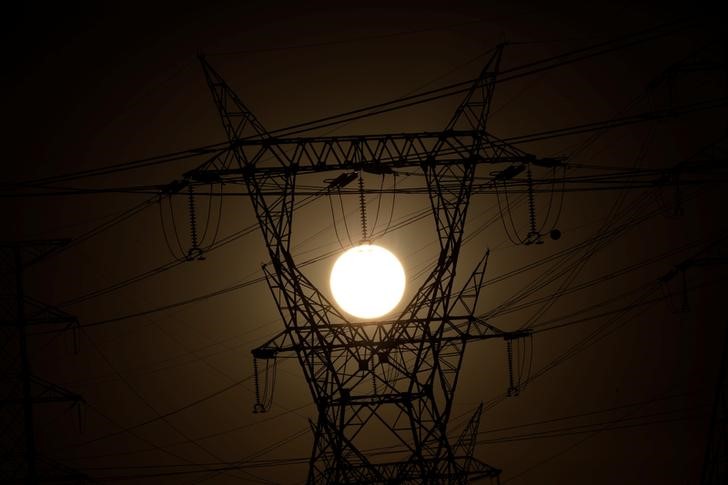5 big analyst AI moves: Apple lifted to Buy, AI chip bets reassessed
(Bloomberg) -- European Commission President Ursula von der Leyen promised an “emergency intervention” in the bloc’s runaway electricity markets, but diplomats say that any significant steps will take weeks to hash out and implement.
The EU’s executive arm is still in the process of devising various options for how the bloc could try to bring down the price of electricity, which is about 10 times higher than it was a year ago, the diplomats say.
When European energy ministers gather in Brussels on Sept. 9 for an extraordinary meeting, they will aim to reach a political agreement on how the bloc should act, while leaving the regulatory details for later. Another big clue could come when von der Leyen delivers her annual state of the union speech on Sept. 14.
“We need an emergency instrument which would be triggered very quickly, in weeks perhaps,” von der Leyen said Monday evening in Berlin. “After that, there will have to be a deep and structural reform of the energy market. I think that will come at the beginning of next year.”
The mere announcement of the plan to intervene sent power prices plunging on Tuesday, despite the lack of details. German power for next year fell as much as 26%, while Dutch natural gas fell some 11%. Both benchmark contracts extended losses from Monday, after surging to records last week.
Read more: EU Nears Gas Storage Goal Early Despite Russian Supply Cut (1)
But the EU now has the difficult task of trying to devise a solution that all 27 nations -- with varying power sources and needs -- can agree on.
The Czech Republic, which holds the bloc’s rotating presidency, is proposing to cap prices of natural gas used for electricity generation and is working to get others on board. In recent months, other countries have been recommending different steps, including Italy, which called for a limit on the price of gas imports from Russia. Greece has suggested separating electricity produced from renewable, hydropower and nuclear sources from those generated via fossil fuels when setting power prices.
Windfall Tax
German Economy Minister Robert Habeck suggested implementing an excessive profit tax as a way to help companies and consumers cope with the price shocks.
“This phase of transition should be used to skim some of these excessive profits,” he said Monday evening. “The companies would still earn this money, but then it would be taken from them and be used to preserve the social cohesion and also to finance any aid for the companies, until we have developed and implemented the new market design.”
Once the bloc settles on a particular path, it will likely be implemented in the form of a regulation that can be fast-tracked but will still likely take at least several weeks to draft, review and approve.
Von der Leyen also said it was time for the commission to come up with a longer-term plan to decouple electricity prices from natural gas.
“We need to balance two things: one, of course, the seriousness of the situation and the consequences faced by consumers and industry,” Eric Mamer, the commission’s chief spokesman, told reporters Tuesday. “But, on the other hand, the need to come up with proposals that are suited to the complexity of our energy markets, and in particular of our electricity markets. So it’s very important that we take the time to come up with proposals that can cater to these two different dimensions.”
French President Emmanuel Macron also repeated his call for a reform of the EU electricity market on Monday, saying he’s aiming for a market “protected from elements of speculation” and with new pricing formulas.
Diplomats say that the drafting process for this more ambitious plan may start later this year, with a thorough study of its potential impact to be the first step. A legislative proposal could come next year in a process that usually takes as long as two years to be turned into a binding law.
©2022 Bloomberg L.P.
